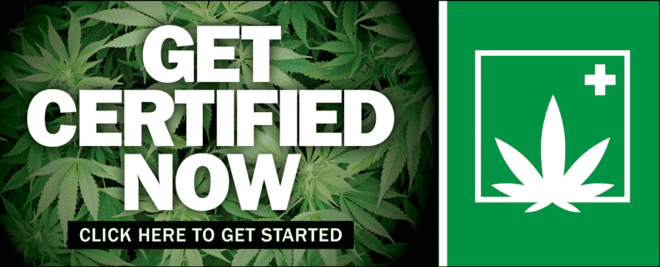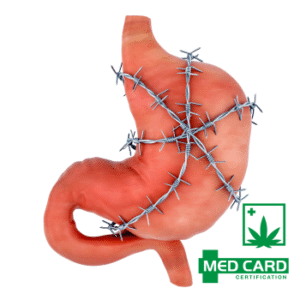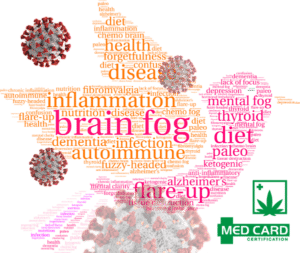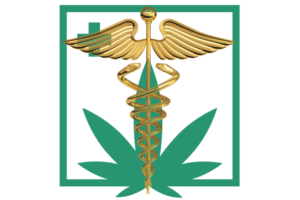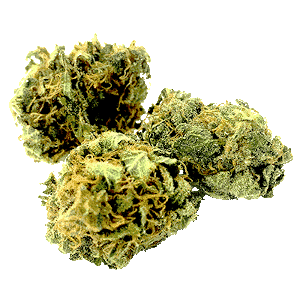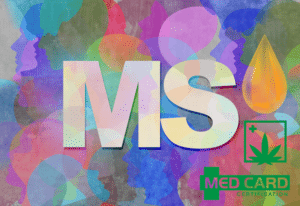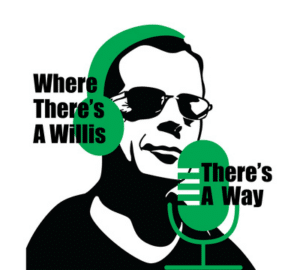
How To Treat ALS With Medical Marijuana
Medical marijuana for ALS? Yes! Many patients are successfully treating ALS with marijuana. Patient reports suggest that marijuana relieves symptoms of ALS. Moreover, compounds produced in marijuana called cannabinoids protect neurons from damage and possibly slow the progression of ALS and increase the lifespan of patients.
Patients are treating ALS with medical marijuana in several U.S. states. Some states specifically list ALS as a qualifying condition for a medical marijuana card. And some states, such as Florida, allow medical marijuana doctors to decide who is eligible to purchase medicine at medical marijuana dispensaries.
ALS is on the rise in the U.S. And the truth is that ALS patients have very few options that are as safe and effective as medical marijuana for treating their symptoms.
We’re going to talk about how to treat ALS with medical marijuana here shortly. Before we do that, we’ll quickly explain what ALS is. We’ll also take a quick look at the causes and symptoms of ALS. After that, we’ll explain how medical marijuana helps to reduce and relieve some of these symptoms.
What is ALS?
ALS, stands for amyotrophic lateral sclerosis. This neurodegenerative condition is also commonly known as Lou Gehrig’s Disease after the early 20th Century Baseball Hall-of-Famer who died at the age of 38 due to complications of ALS. Not everyone who develops ALS dies early. World-renowned physicist Stephen Hawking who was diagnosed with ALS while still in college lived to be 76 years old.
ALS is a severely debilitating disease. It causes the deterioration of brain cells and neurons in the spinal cord. In advanced cases of ALS, patients have trouble with simple things like walking and speaking clearly. As the disease progresses, ALS patients might lose all muscle control.
The specific cause of ALS is not known. ALS afflicts patients seemingly at random. However, some ALS patients have a family history of the condition.
Currently, ALS patients have very few options for treatment. And prescription drugs used to treat ALS often produce severe side effects. Medical marijuana is proving to be a safe and effective alternative that can help to reduce or altogether eliminate the use of pharmaceuticals.
Not only does marijuana help to reduces symptoms in some ALS patients, many experts believe that medical marijuana might actually delay the onset and slow the progression of ALS and other neurodegenerative disorders.
How does medical marijuana relieve symptoms of ALS?
In addition to the countless anecdotes of ALS patients successfully treating symptoms of ALS with medical marijuana, there has also been some scientific inquiry into the matter. What researchers have found is that compounds produced in the cannabis plant called cannabinoids can reduce ALS symptoms in some patients and help them to live longer, fuller lives.
One research report published in 2016 was titled, “Can cannabinoids be a potential therapeutic tool in amyotrophic lateral sclerosis?” In the paper, the authors claimed that neuron damage seen in ALS patients could be triggered by an imbalance of the human endocannabinoid system (ECS). Here’s what they had to say:
“All these data show how editing CB2-mediated processes could change ALS progression and how much the endocannabinoid system is potentially involved in reducing neuroinflammation, excitotoxicity and oxidative cell damage. There is a valid rationale to propose the use of cannabinoid compounds in the pharmacological management of ALS patients.”
In another study performed on lab animals, researchers at the California Pacific Medical Center in San Francisco showed that the progress of ALS could be slowed with cannabinoid supplementation. Moreover, the treatment prolonged their survival.
In one human study, researchers surveyed patients who were already using marijuana to treat their condition. It was found that medical marijuana offered several benefits to ALS patients such as relieving pain, relaxing stiff muscles, improving sleep, and reducing depression, among others.
In one of the most telling reports titled, “Cannabis and amyotrophic lateral sclerosis: hypothetical and practical applications and a call for clinical trials,” cannabis was shown to actually slow the progression of neurodegeneration.
Their authors of the study concluded:
“Based on the currently available scientific data, it is reasonable to think that cannabis might significantly slow the progression of ALS, potentially extending life expectancy and substantially reducing the overall burden of the disease. There is an overwhelming amount of preclinical and clinical evidence to warrant initiating a multicenter randomized, double-blind, placebo-controlled trial of cannabis as a disease-modifying compound in ALS.”
How is medical marijuana used to treat ALS?
The important things to remember with medical marijuana is that there are several options for both delivery methods and formulas, and each patient responds to these products differently. As a result, patients are encourages to try different types of products and formulas to see which provides them with the most relief.
For ALS patients with severe loss of motorskills, cannabis-infused tinctures or cannabis oils can be easily administered by a caregiver sublingually. These products generally come in a dropper bottle. Dosage is measured in drops and applied under the tongue where cannabinoids are absorbed into the bloodstream via the lining of the mouth. Cannabis concentrate syringes can also be used. However, they an extremely bitter taste. Concentrates can aslo be used in cooking as can tinctures and oils.
Cannabinoid patches are also a great option for ALS patients. They are easy to apply and offer accurate dosing.
Although smoking and vaping cannabis flower and concentrates provides a fast onset time, not all patients are able to use these delivery methods. Moreover, smoking and vaping can cause or worsen health problems such as high blood pressure and chronic bronchitis.
The other important thing to remember is that there is more than just one type of cannabinoid compound. While THC found in marijuana can cause intoxication, other cannabinoids such as CBD and CBG which are also found in hemp (which is legal in the U.S.) are non-intoxicating and provide sufficient relief for many ALS patients. Moreover, patients can purchase CBD and CBG oil online without a medical marijuana card.
What dosage of marijuana should be use to treat ALS?
As we mentioned earlier, cannabinoids affect each patient differently. The ECS is complicated system that is expressed differently in each patient. For this reason, it’s important to start with as low a dosage as possible when first administering cannabis. If there are no unwanted effects, then the dosage can be increased little by little over the course of a few days.
A typical dosage can range anywhere from 5 milligrams per day (considered microdosing), up to hundreds of milligrams multiple times each day. However, the most common dosage ranges between 10 milligrams and 50 milligrams a few times each day or every four hours. However, 50 milligrams of THC is considered a very high dosage and can cause severe intoxication in some patients.
Although cannabinoids are usually well-tollerated in dosages of hundreds of milligrams, beyond a certain dosage patients will find no additional benefits. Also keep in mind that cannabinoids are expensive and can cost upwards of $100 per 1,000 milligrams or more making excessive use costly and a waste of money.
Patients are strongly encouraged to speak with a qualified medical marijuana doctor and/or experienced budtender for advice on dosage. There are also numerous ALS patient groups across the country. It might be extremely helpful to learn from the experiences of other medical marijuana patients with ALS.
What are the side effects of medical marijuana?
Although marijuana is non-addictive, non-toxic, and one of the safest treatment options for ALS patients, some patients do experience unwanted effects.
For starters, many ALS patients don’t want the high that comes with marijuana. Or they need high doses of cannabinoids. For these patients, there are products that are very low in THC and that are non-intoxicating when used in moderation.
One of the more common unwanted side effects of marijuana and cannabinoid-infused products is drowsiness and lethargy. ALS patients who already suffer from extreme fatigue should stick with smaller dosages.
Common side effects of THC include anxiety, giddiness, forgetfulness, dry mouth, and insomnia, as well as changes in appetite and sleep cycles. Although THC can be intoxicating it does offer powerful neuroprotectant properties. Even small amounts of THC might slow the progress of the disease in some patients.
How do ALS patients get a medical marijuana card?
Currently, only about two-thirds of U.S. states permit the use of medical marijuana. And not all of them consider ALS to be a qualifying condition. Some states, however, leave the decision up to the doctor. And in states where ALS is not listed among the qualifying condition, some of the symptoms such as chronic pain, insomnia, depression and so forth might be listed. Patients will need to check the medical marijuana laws in their state. Most doctors will be lenient with ALS patients.
Once approved, patients or their caregivers will be able to visit medical marijuana dispensaries in their state. Some offer online ordering with curbside pickup or home delivery. Each state has set limits to the amount of marijuana or cannabis-infused products a patient is able to purchase.
We hope this quick overview will help ALS patients who are considering using medical marijuana to make informed decisions. We’ve also included link to articles and videos on the topic below. However, it’s important to discuss the use of cannabis with the patients physician.
If you are a resident of a legal state interested in trying medical marijuana to treat Amyotrophic Lateral Sclerosis (ALS) or other medical conditions, you will first need to consult with a certified doctor in order to get a medical marijuana card. To get started, simply fill out the MMJ patient registration form, press submit and a physician or clinic representative will contact you as available.
Marijuana strains reported to help with Amyotrophic Lateral Sclerosis (ALS):
- Stephen Hawking Kush
- Ringo’s Gift
- Jack Herer
- One to One (OTTO)
- Jamaican Lion

Sign Up for Medical Cannabis Today!
For potential patients, if you’re ready, we make it easy to connect with a medical marijuana doctor nearby or online. If you are interested in getting certified, please fill out the MMJ patient registration form below and press submit to get started. See if you qualify today!

MedCard Registration Form


Medical Marijuana Links:
Sources and additional reading
- Cannabis and amyotrophic lateral sclerosis: hypothetical and practical applications, and a call for clinical trials
- ALS Patients Could Benefit from Cannabis Compounds, Study Suggests
- Can cannabinoids be a potential therapeutic tool in amyotrophic lateral sclerosis?
- Neurological Aspects of Medical Use of Cannabidiol
- Results of Florida’s Amyotrophic Lateral Sclerosis Surveillance Project, 2009–2011
- Victory for Cathy Jordan, ‘patron saint’ of Florida medical marijuana


